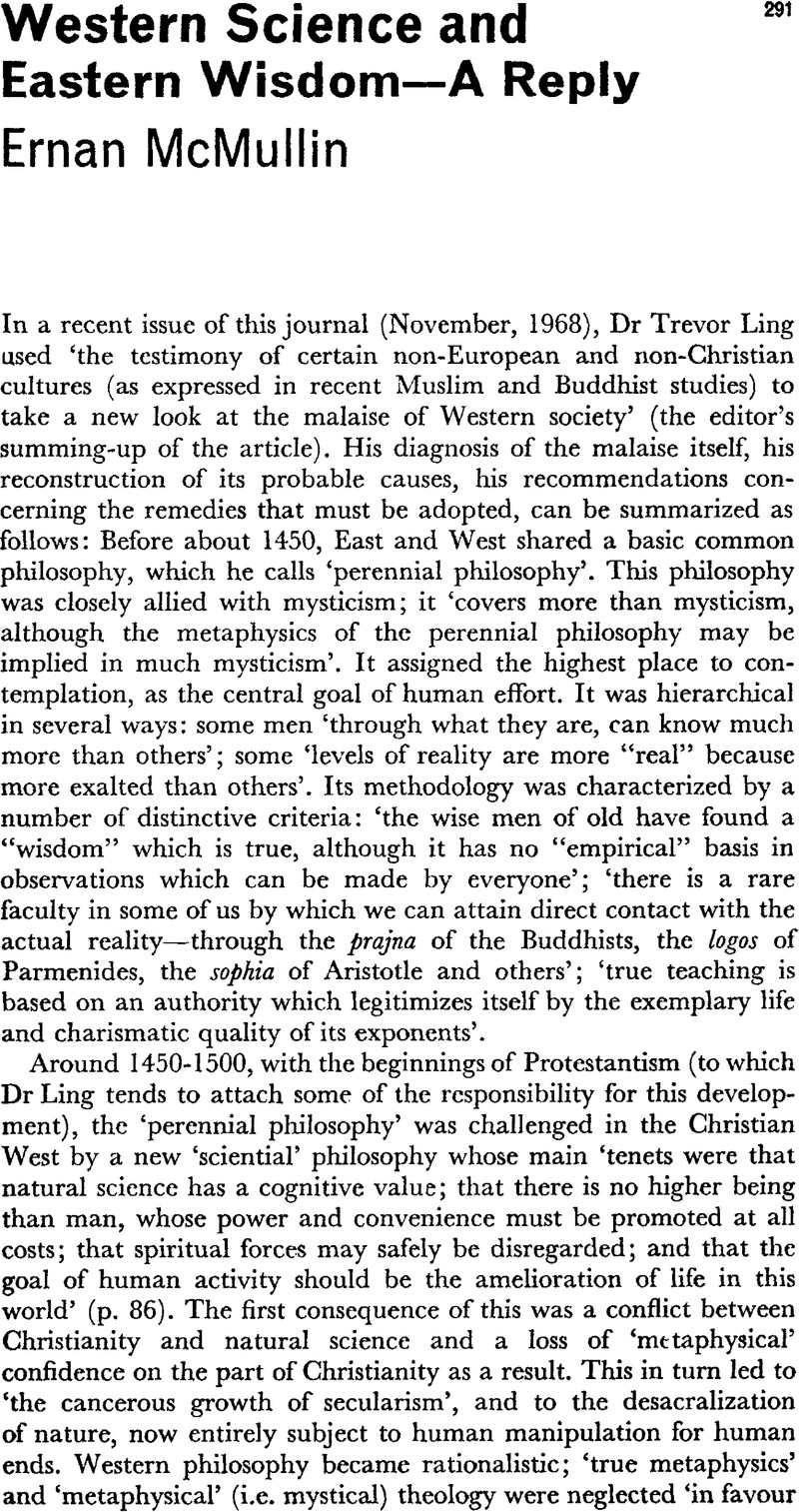No CrossRef data available.
Article contents
Western Science and Eastern Wisdom—A Reply
Published online by Cambridge University Press: 01 July 2024
Abstract

- Type
- Reply
- Information
- Copyright
- Copyright © 1969 Provincial Council of the English Province of the Order of Preachers
References
page 293 note 1 See From Religion to Philosophy, F. M. Cornford, London, 1912Google Scholar.
page 294 note 1 I have discussed this point at more length in ‘Cosmic Order in Plato and Aristotle’, The Concept of Order, ed. by Kuntz, P., Seattle, 1968Google Scholar.
page 296 note 1 See my essay ‘Augustine’, Dictionary of Scientific Biography, New York, Vol. 1, 1969Google Scholar.
page 296 note 2 De Genesi ad litteram, Migne, Patr. Lat., 34, 271.
page 298 note 1 For a good analysis of the contrasting ‘rationalist’ tendencies of Catholicism and the ‘fideist‐mystical’ tendencies of Lutheranism, see Randall, J. H., The Role of Knowledge in Western Religion, Boston, 1958Google Scholar.
page 300 note 1 See for example, his essay, ‘What accelerated technical progress in the Western Middle Ages?’ in Scientific Change, ed. by Crombie, A. C., London, 1963Google Scholar.
page 300 note 2 Notably in Lobkowicz, N., Theory and Practice, Notre Dame (Ind.), 1967Google Scholar. This is a detailed history of the interaction of these concepts from Aristotle to Marx.
page 300 note 3 Lynn White, loc. cit. and Ladner, G., ‘The impact of Christianity’, in The Transformation of the Roman World, ed. by White, L., Berkeley, 1966, pp. 59–91CrossRefGoogle Scholar.
page 301 note 1 I have discussed some of them in ‘Aristotelian and Modern Science: continuity or discontinuity?’Intern. Philos. Quarterly, 5, 1965, 103–120.
page 302 note 1 Because of the destructive potential that twentieth‐century science has manifested, Lynn White would see in Christianity's responsibility for aiding the original development of theoretical science, if not a cause for grieving, at least no cause whatever for self‐congratulation. See ‘The historical roots of our ecologic crisis’, Science, 155, 1977, 1203–7.
page 303 note 1 Generalizations like this are of course risky, since the intellectual history of China has been such a rich and complex one. There were schools of thought in ancient China (like the Mohist one in the fourth century B.C.) which were much more akin to Western activism. But I have been speaking here of the prevailing Confucian and neo‐Confucian passivist tradition, rooted originally in the fixed agricultural patterns of the Bronze Age and later incorporating Buddhist and Taoist ideas. See Joseph Needham's magisterial work, Science and Civilization in China, five volumes of which have now appeared (Cambridge, 1954—).
page 303 note 2 See Northrop, F. S. C., The Meeting of East and West, New York, 1946Google Scholar.


